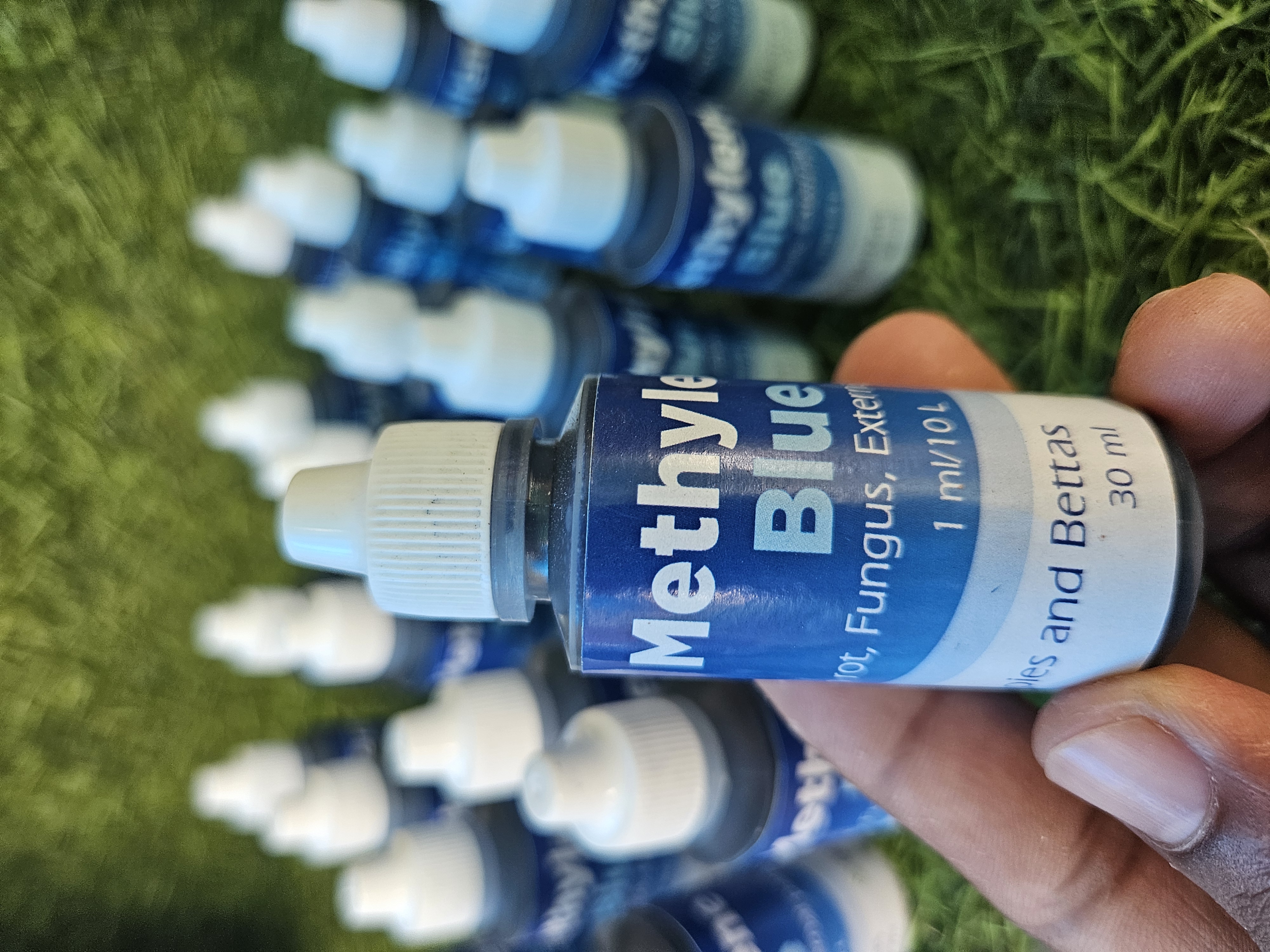| Methylene blue is a medication commonly used in aquariums to treat and prevent various diseases in fish, including guppies.
Here's a breakdown of its uses and important considerations for guppies:
Uses
Antifungal: Effective against fungal infections that manifest as white, cotton-like growths on fins or bodies.
Antiparasitic: Helpful in treating external parasitic infections like Ich (white spot disease), Velvet (Oödinium pilularis), and Chilodonella.
Ammonia and Nitrite Poisoning: Can aid in reversing poisoning caused by elevated ammonia and nitrite levels in the water.
Egg Fungus Prevention: Used to treat fish eggs and prevent fungal overgrowth, improving hatching success.
Stress Reduction: Can help alleviate stress in fish, particularly during transportation or changes in the aquarium environment.
Important considerations and precautions
Quarantine Tank: It's recommended to treat infected guppies in a separate quarantine tank to avoid harming beneficial bacteria in the main aquarium's filter.
Live Plants and Invertebrates: Methylene blue can harm live plants and invertebrates like snails and shrimp. If treating in the main tank, introduce it carefully and only expose plants for limited periods.
Filter Media: Remove activated carbon or chemical filtration during treatment, as these will remove the methylene blue.
Dosing: Always adhere strictly to the dosage instructions on the product label. Overdosing can be detrimental to fish, according to Quora.
Water Changes: After treatment, perform partial water changes and replace filter carbon to remove residual methylene blue.
Disclaimer: This information is for general knowledge and should not be taken as professional veterinary advice. Consult with a veterinarian specializing in fish health or a knowledgeable aquarist for personalized guidance on using methylene blue for your guppies. |
